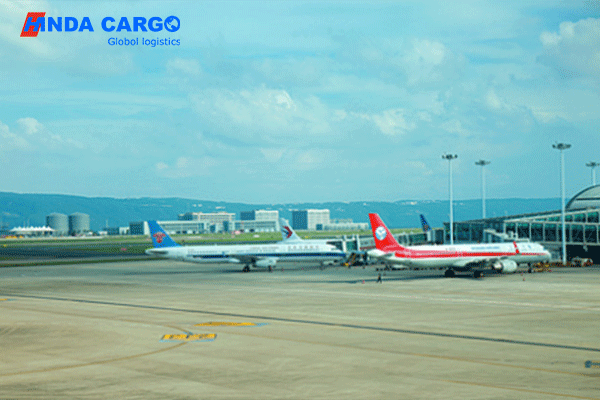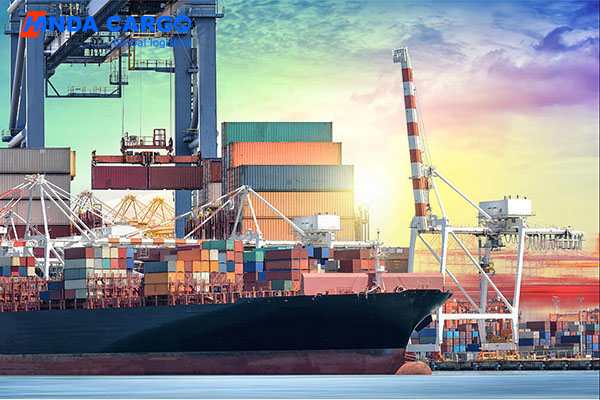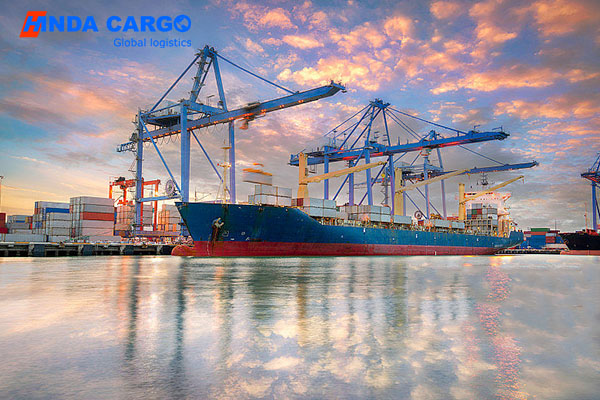What is freight shipping? How much does it cost?
From manufacturers to retailers to consumers, freight shipping connects every link in the global supply chain. So, what exactly is freight shipping? How much does freight shipping cost?
This article will explore the definition, types, cost structure and influencing factors of freight shipping in depth to help readers better understand this complex and important field.

What is freight shipping?
Freight shipping, as the name suggests, refers to the transportation of goods. It includes the entire process of transporting goods from one location to another. This process involves a variety of modes of transportation, such as sea, air, land and rail transportation. Freight shipping is not limited to physical transportation, but also includes related logistics management, warehousing, packaging and distribution.
The main modes of transportation for freight shipping:
1. Sea transportation: transporting goods on the ocean by ship, suitable for bulk goods and long-distance transportation.
2. Air transportation: transporting goods by airplane, fast speed, suitable for high-value and urgent goods.
3. Land transportation: transporting goods on land by truck or train, suitable for medium and short distance transportation.
4. Railway transportation: Transporting goods by train is suitable for bulk goods and long-distance land transportation.

What are the components of freight shipping costs?
Freight shipping costs are the sum of various costs in the freight shipping process. Understanding the composition of freight shipping costs can help companies and individuals plan logistics costs reasonably. Freight shipping costs usually include the following parts:
1. Basic freight: Basic freight is the basic cost calculated by the freight shipping company based on factors such as the weight, volume, transportation distance and mode of transportation of the goods. The basic freight will vary greatly depending on the mode of transportation and destination.
2. Fuel surcharge: Due to fluctuations in oil prices, freight shipping companies usually charge a fuel surcharge in addition to the basic freight. The fuel surcharge is calculated based on the current oil price and transportation distance, and is intended to compensate for changes in fuel costs.
3. Safety and insurance costs: Goods may face risks such as damage and loss during transportation. In order to ensure the safety of goods, cargo owners usually purchase freight shipping insurance, and the insurance cost is calculated based on the value of the goods and the insurance coverage.
4. Duties and taxes: International freight shipping involves import and export duties and taxes. These fees are levied by governments based on the type, value and destination of goods, and the owner of the goods needs to pay them when clearing customs.
5. Additional service fees: Freight shipping companies will charge separate fees for additional services such as packaging, loading and unloading, warehousing, and distribution according to the service items. These fees are usually calculated based on the type of service and workload.
What factors affect freight shipping costs?
Freight shipping costs are affected by many factors, mainly including transportation methods, types of goods, transportation distance, timeliness requirements, market supply and demand, etc.
1. Transportation methods: Different transportation methods have different costs. Air transportation costs the most, followed by sea and land transportation. Choosing the right transportation method not only affects the transportation time, but also directly affects the transportation cost.
2. Type of goods: The weight, volume and nature of the goods (such as fragile goods, dangerous goods) will affect the transportation costs. Heavy and large goods have higher transportation costs, while dangerous goods and fragile goods require special handling and packaging, which adds additional costs.
3. Transportation distance: The longer the transportation distance, the higher the cost. International freight shipping involves cross-border transportation, and its cost is usually higher than domestic transportation.
4. Timeliness requirements: Urgent freight shipping and expedited services are more expensive. Although air freight is expensive, it is fast and suitable for goods in urgent need. Ocean freight is cheap, but the transportation time is long, which is suitable for goods that are not in urgent need.
5. Market supply and demand: Market supply and demand will also affect freight shipping costs. During the peak season of freight shipping demand, the cost will usually increase; during the off-season, the cost may decrease.

How much does freight shipping cost?
To better understand the composition and influencing factors of freight shipping costs, we will illustrate with several real cases.
Case 1: Air Freight Electronics
An electronics manufacturer in Shenzhen, China needs to ship a batch of high-value smartphones to Los Angeles, USA. Because the products are of high value and customers are in urgent need, the manufacturer chooses air freight.
●Basic freight: $8 per kilogram
●Fuel surcharge: $2 per kilogram
●Insurance cost: 1% of the total value of the goods, or $2,000
●Taxes and taxes: calculated at the US import rate
●Additional service costs: $500 for packaging and reinforcement
★Total cost: Assuming the weight of the goods is 500 kilograms, the total cost is: (500 kilograms × $8/kilogram) + (500 kilograms × $2/kilogram) + $2,000 + tariffs and taxes + $500.
Case 2: Furniture shipped by sea
A furniture manufacturer in Italy needs to ship a batch of furniture to Sydney, Australia. Since the furniture is large in size but not in urgent need, the manufacturer chooses sea shipping.
●Basic freight: US$100 per cubic meter
●Fuel surcharge: US$20 per cubic meter
●Insurance: 0.5% of the total value of the goods, or US$1,000
●Duties and taxes: calculated at the Australian import rate
●Additional service charges: Packaging and handling charges of US$1,000
★Total cost: Assuming the volume of the goods is 50 cubic meters, the total cost is: (50 cubic meters × US$100/cubic meter) + (50 cubic meters × US$20/cubic meter) + US$1,000 + duties and taxes + US$1,000.




